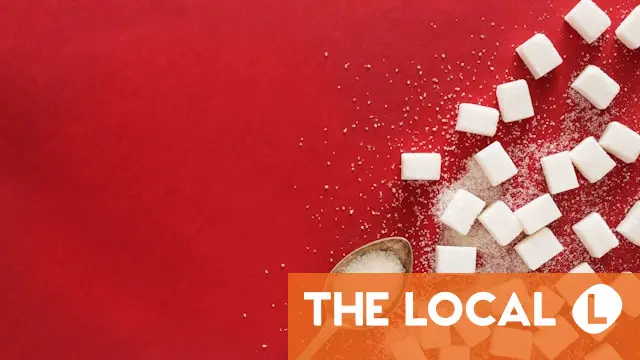A Green party MP wants to cap sugar levels in soft drinks as average Swiss consumption is double the World Health Organisation recommended limit. With obesity-related diseases on the rise, could Switzerland be about to introduce a sugar tax?
Cardiovascular disease, obesity, diabetes, and cancer affect more than 2.2 million people in the Alpine nation and account for some 80 percent of direct healthcare costs, costing the country upwards of CHF 50 billion each year.
And excessive sugar consumption plays a proven role here – in Switzerland, sweet drinks are responsible for 10.5 percent of diabetes cases, according to a study in the journal “Nature Medicine”, for example.
These data led Green Party MP Manuela Weichelt to submit a motion to the Federal Council calling for a cap on sugar levels in sweetened drinks.
She asked the Council to stipulate, in the appropriate legislation, a maximum content of 5g of added sugar per 100ml.
According to the parliamentary motion, manufacturers whose drinks exceeded that limit would have five years to comply.
Switzerland is a big consumer of sugar: each inhabitant takes in around 100g of sugar a day – double the amount recommended by the World Health Organisation.
Much of this comes from sweetened drinks – Weichelt pointed out that these account for 38 percent of the country’s sugar intake.
“Introducing a limit for added sugars in flavoured and caffeinated beverages would help reduce sugar consumption among young people and children, thus making a significant contribution to the prevention of chronic diseases,” she said in the motion, adding that it would also improve quality of life and reduce healthcare costs.
Advertisement
Non-binding agreement
Several European countries have already successfully brought in similar initiatives to combat the effects of high-sugary diets. And with results: youth obesity has declined in the UK since a cap on sugar was introduced, Weichelt noted as an example.
So what’s the situation currently? To date, there is only the Milan Declaration in Switzerland, whereby Swiss companies voluntarily sign up to reduce sugar in the food and drink they produce. However, they are not legally held to this commitment as it’s non-binding.
A dozen food and drink producers – including Nestlé, Emmi, Coop and Migros – signed up to the agreement in 2023, but a survey by broadcaster RTS at the end of 2024 showed that not all the companies were adhering to their commitments.
“The voluntary principle clearly doesn’t work,” said Weichelt.
Doctors also agree that the Milan Declaration doesn’t go far enough.
Advertisement
“Sugar consumption among the Swiss population exceeds 100 grams per day. This overconsumption contributes to numerous chronic diseases, particularly obesity, type 2 diabetes, and cardiovascular disease. With 500ml of sugary drinks, we’re reaching double the recommended daily intake,” paediatrician Nathalie Farpour-Lambert previously told RTS.
There have been attempts to regulate sugar over the years, but so far, they’ve always been rejected by parliament. But could things be changing?
READ ALSO: REVEALED: What the Swiss government wants you to eat to stay healthy
In May, the government said it wanted to see an additional 10 percent reduction in products included in the Milan agreement by 2028, 20 Minuten reported. An action plan is expected to be completed by the end of 2025.
And in June, several paediatric associations across Europe came together to call for a tax on sugar and advertising restrictions to help tackle childhood obesity.
‘Demonisation’ of sugar
But not everyone thinks regulating sugar is a good idea.
“What else are we going to prohibit people from doing? We are responsible citizens, capable of choosing for ourselves what we drink or not,” said Swiss People’s Party MP Diana Gutjahr.
Some 20 Minuten readers agreed.
Giorgio1954 thought a ban was pointless, saying that “consumers want to be free and are intelligent enough. They don’t need to be controlled by the left-wing Greens about what they eat”.
And Heinzito called it a “demonisation” of sugar. “Those who consume too much sugar will continue to do so. But 80 percent of the population will be forced to abstain.”
But others were in favour of capping sugar content. Fennek, for example, believed that “most people don’t have the discipline to forgo sugar-free drinks”.
Advertisement
“I don’t believe in voluntary action by manufacturers. It’s all about sales figures, nothing else,” Fennek added.
And DaveSave said that while it may not achieve much in the short term, “it should send a message that we don’t need additional sugar for a healthy diet”.
Several readers also advocated for the introduction of a sugar tax and, at the very least, clearer labelling so that people could make more informed choices.
“You have to look at the label every time, and if you find it, you need a magnifying glass. This should be corrected,” said Nederlands4EVER.
What do you think? Should Switzerland tax sugar? Let us know in the comments!
